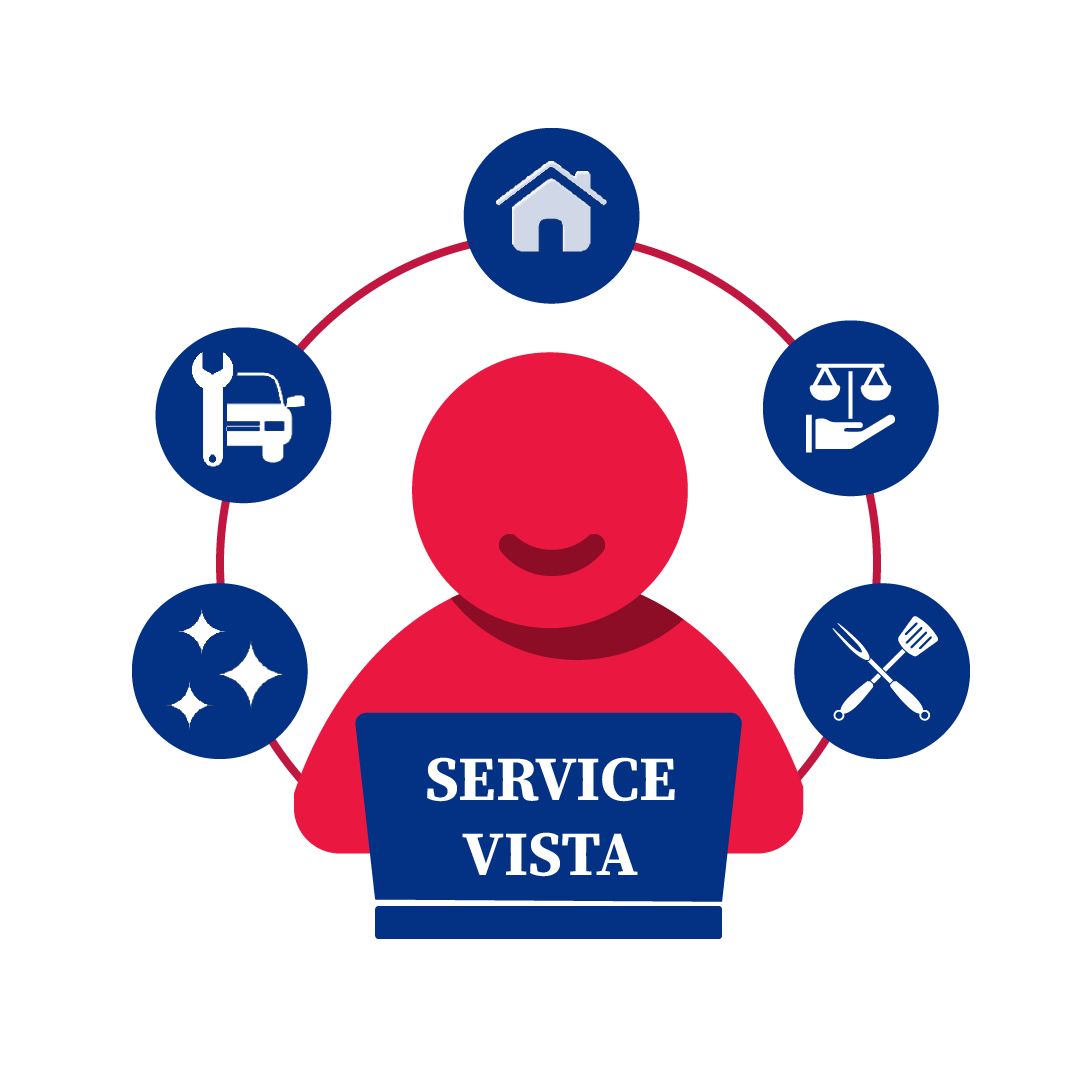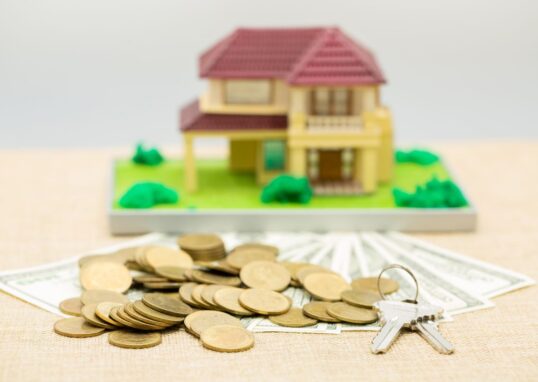
The taxation system, which is followed in places like Wales, Scotland, and England, gets applied to domestic local properties. It’s based on the value of the property or a house, or it also depends on the person living in it. It is an expense that every owner of real estate must bear.
The tax is not only applied when someone is living on a specific property but it also gets applied when the house is empty. For 2 years, the tax price of an empty property is the same as it was for the owners; but, after that time, it rises. For your better comprehension, we go into greater detail regarding the council tax on vacant homes in this material.
Table of Contents
What is council tax?
One kind of payment that get paid to your local council is the council tax, and it helps you in having benefit from some local services. The primary goal of this tax is to raise funds for general upkeep, fire protection, and cleaning up unclean streets in order to create a better society. It centers on the local assistance provided to the community paying the taxes in order to obtain the services.
Now you may wonder how the tax actually get calculated and how this tax is not the same for all people. The worth of the property you live on, and the members determine how much tax you must pay. A bill for the entire year will be generated and your property will be placed in a band ranging from A-H. A lot of owners use a debit to settle the balance on monthly basis. The homeowners also receive the tax, where the details of the tax breakdown are explained.
The council tax plays an important part in funding local services because the main objective of the tax is also linked to it. The tax mainly gets used to make the local service slightly better for people who are living there. The amount of central tax gets increased in situations When the local government stops providing funding. Subsidizing for nearby administrations is given by different sources, including government and business ventures.
Council Tax on Occupied Homes :

Some difference in the council tax regulations between inhabited and vacant homes is present. It’s a tax or a yearly fee. People who live in occupied homes do so on a daily basis as the home’s owners. People who are living on that property start giving the tax for their home on completion day.
For occupied residences, who is qualified to pay council tax?
- The owner of the house, or the person who lives there, is thereby paying the rent.
- A person who is over 18.
The council tax on occupied homes depends on the band your home is in. The exact location of your property has an impact on your property tax liability as well. England and Scotland share the same 8 band system for calculating the tax, and Wales uses the 9-band system. The value of your occupied home depends on the real value the property holds and on the number of members who are living there. The person who moved to a new property should merely contact the owner of property to discuss the council tax paying structure.
Factors affecting a property’s council tax banding
Regarding the newly constructed property, the VOA will automatically guide them to place them in the correct council tax band.
These evaluations are predicated on:
- Dimensions
- Arrangement
- Location
- Personality
- Value as of a specific date
- Modification of usage
Understanding the Council Tax on Empty Homes
Regardless of whether the property is taken or not, the owner must pay the council tax on annually basis. Empty homes are those homes where there is no one living on rent or where the real owner of the house lives somewhere else.
At the point when the property is vacant, how much committee charge likewise changes. The sum is determined by the cause of the vacant property as well as the duration of its unoccupied state. The cost of vacant homes is also impacted by local government regulations. But if the property remains unoccupied for an extended period of time, the regulations get stricter and they might have to pay additional council tax. In Britain, this really depends on an extra:
- 100% for homes left unoccupied for 2 to 5 years.
- 200% for homes left unoccupied for 5 to 10 years.
- 300% for homes neglected for more than 10 years.
In certain conditions, you need to pay the twofold Council Tax, similar to when your home is unfilled for Multiple or 2 years.
Here are a few circumstances under which council tax may apply to empty homes: –
- The council tax will increase because the house hasn’t been occupied for at least a 1 year.
- Giving a duty on the vacant property is an unquestionable requirement, however the chamber can choose to provide you with a markdown of half.
- The owner is not required to pay council tax if a rented property is vacant for 7 days or more.
- You may be exempt from council tax assuming that the property is an annex, or if you are related to the military.
Exemptions and discounts
You will be able to receive an exemption if the property has a pitch involved by a band or a securing with a boat, then it’s possible you can get a board charge exclusion. In practical terms, this usually implies that as long as it’s a secondary residence, a static caravan in a caravan park won’t be subject to council tax.
The space needs to be vacant and unfurnished. You receive a 3-month maximum 100% discount. At the point when the 3 months are finished, we class it as “long haul unfilled,” and you pay 100%.
Additionally, the property owner can lower the council tax for the person who is living in it. The owner must not be liable for any construction related council taxes while the property is under construction. The person can apply for a single-person council tax to get some discounts. People living on rent will also get a discount when they share the home with someone who is not mentally stable. Pay the taxes after checking the council tax. Full time students are fully eligible for some discounts.
Responsibilities of Property Owners :

Assuming the property is vacant, the obligation of paying the expense goes to the proprietor of the property. The owners used to be able to get a reduction, but now they are required to pay a significant sum for the empty ones. The owner must get in touch with the local councils in order to take advantage of any reductions. In case of a defer in charge, the proprietor needs to suffer some consequence sum as well.
The primary element influencing the property’s tax cost is the length of time it has been vacant. If the house has been unoccupied for ten years or longer, you may be assessed up to four times your regular council tax amount.
The vacant home premium won’t be due from the owner if either:
- The vacant land is annexe.
- You have a job that requires you to live in an armed forces apartment, and you’re in the military.
Always notify the local council of any changes to your property as soon as possible, as this might have an impact on your council tax costs. Speak with the regional councils if:-
- The property is divided into different flats.
- Made the one property by merging the different flats.
- Converted the property in the house or any other area.
- If you added the annexe to your property.
- If the property status gets changed.
Local Variations and Regulations:
The advice and the regulation of local council matters a lot. Make sure to acknowledge that Council Tax regulations may vary by locality. If you face any problem in understanding any rules or regulation so also check in with your local councils. The band rates can get change with time and your local council can keep you updated with all band information on your property. Follow the guidelines made by local councils and give the details about the change of rate in property.
Penalties for non-compliance :
Not paying the board expense can accompany results. Although it’s not illegal, there are a number of drawbacks. If you fail to pay the amount at the right time, the government can give you some big penalties. Your assessment can twofold or triple. The government sends three reminder notices as a warning, and if this notice gets ignored, they send the court summons, which makes the problem bigger.
A liability order, which transfers jurisdiction to the local government, is another tool available to it. These authorities may include the following, contingent on the amount owed:
- Attachment of income
- Deduction from benefits
- Using law enforcement personnel
- Insolvency
- Orders for charging
- Committal to jail
The owner has to understand the significance of adhering to commitments and remaining informed. If the acts are not in line with the local government’s regulations, they may encounter issues and face higher taxes.
FAQ:
I’ve broadened my property; will my council tax go up?
A property’s council tax band cannot be changed by extending it until a pertinent transaction has occurred. A sale or the granting of a lease for a period of 7 years or longer is considered a meaningful transaction.
I believe I’m paying some unacceptable council tax band; What ought I to do?
You might be able to contest your council tax band with your local council if you believe you are in the incorrect one. Nonetheless, you should do your exploration first.
Can I avoid the council tax on empty property?
Avoiding the tax is a bad idea because it doubles the amount and creates a case against you in court. Before the matter is brought before a judge, the government will attempt to file the tax and deliver a warning letter. Keep yourself updated on each new detail related to the rules of council tax.
Conclusion:
The content summarizes that it does not matter if someone is living on the property or not paying the tax, which is a must. Neither the renter nor the owner benefit from tax avoidance. The council tax will help in enjoying some beneficial local services, which are rights. If someone doesn’t want to pay the tax as the owner, they can try to sell the property as soon as possible. All the information needed to apply for a tax discount is already included in the material. While the council tax is not squandered, it will assist the community in receiving the necessary services.






This isn’t just something to read — it’s something to return to, like a favorite place.
Your article helped me a lot, is there any more related content? Thanks! https://www.binance.com/ro/register?ref=HX1JLA6Z
I don’t think the title of your article matches the content lol. Just kidding, mainly because I had some doubts after reading the article.
Thank you for your sharing. I am worried that I lack creative ideas. It is your article that makes me full of hope. Thank you. But, I have a question, can you help me?
Can you be more specific about the content of your article? After reading it, I still have some doubts. Hope you can help me.
Your point of view caught my eye and was very interesting. Thanks. I have a question for you. https://accounts.binance.info/en-NG/register-person?ref=YY80CKRN
Your article helped me a lot, is there any more related content? Thanks! https://accounts.binance.com/kz/register-person?ref=K8NFKJBQ
Your article helped me a lot, is there any more related content? Thanks! https://www.binance.info/register?ref=IHJUI7TF
Your point of view caught my eye and was very interesting. Thanks. I have a question for you. https://www.binance.info/de-CH/register?ref=W0BCQMF1
Thank you for your sharing. I am worried that I lack creative ideas. It is your article that makes me full of hope. Thank you. But, I have a question, can you help me?
Can you be more specific about the content of your article? After reading it, I still have some doubts. Hope you can help me.
Thank you for your sharing. I am worried that I lack creative ideas. It is your article that makes me full of hope. Thank you. But, I have a question, can you help me?
I don’t think the title of your article matches the content lol. Just kidding, mainly because I had some doubts after reading the article.
Thanks for sharing. I read many of your blog posts, cool, your blog is very good.
Your article helped me a lot, is there any more related content? Thanks! https://www.binance.info/register?ref=IHJUI7TF
Can you be more specific about the content of your article? After reading it, I still have some doubts. Hope you can help me. https://www.binance.info/register?ref=IXBIAFVY
Thank you for your sharing. I am worried that I lack creative ideas. It is your article that makes me full of hope. Thank you. But, I have a question, can you help me? https://www.binance.com/uk-UA/register?ref=XZNNWTW7
Thanks for sharing. I read many of your blog posts, cool, your blog is very good.
Thanks for sharing. I read many of your blog posts, cool, your blog is very good.
Thanks for sharing. I read many of your blog posts, cool, your blog is very good. https://www.binance.com/en/register?ref=JHQQKNKN
Thanks for sharing. I read many of your blog posts, cool, your blog is very good.
Thanks for sharing. I read many of your blog posts, cool, your blog is very good. https://www.binance.com/register?ref=IHJUI7TF
Can you be more specific about the content of your article? After reading it, I still have some doubts. Hope you can help me.
Thanks for sharing. I read many of your blog posts, cool, your blog is very good. https://accounts.binance.info/ar-BH/register?ref=S5H7X3LP
Thanks for sharing. I read many of your blog posts, cool, your blog is very good.
Thanks for sharing. I read many of your blog posts, cool, your blog is very good. https://accounts.binance.com/es-MX/register-person?ref=GJY4VW8W
**mitolyn**
Mitolyn is a carefully developed, plant-based formula created to help support metabolic efficiency and encourage healthy, lasting weight management.
https://t.me/s/pov_1win
Your article helped me a lot, is there any more related content? Thanks!
Your point of view caught my eye and was very interesting. Thanks. I have a question for you.
**aqua sculpt**
aquasculpt is a premium metabolism-support supplement thoughtfully developed to help promote efficient fat utilization and steadier daily energy.
**herpafend official**
Herpafend is a natural wellness formula developed for individuals experiencing symptoms related to the herpes simplex virus. It is designed to help reduce the intensity and frequency of flare-ups while supporting the bodys immune defenses.
**mounja boost official**
MounjaBoost is a next-generation, plant-based supplement created to support metabolic activity, encourage natural fat utilization, and elevate daily energywithout extreme dieting or exhausting workout routines.
**prostafense**
ProstAfense is a premium, doctor-crafted supplement formulated to maintain optimal prostate function, enhance urinary performance, and support overall male wellness.
**neuro sharp**
Neuro Sharp is an advanced cognitive support formula designed to help you stay mentally sharp, focused, and confident throughout your day.
Thanks for sharing. I read many of your blog posts, cool, your blog is very good.
Your point of view caught my eye and was very interesting. Thanks. I have a question for you. https://accounts.binance.info/es-MX/register-person?ref=GJY4VW8W
Thank you for your sharing. I am worried that I lack creative ideas. It is your article that makes me full of hope. Thank you. But, I have a question, can you help me? https://accounts.binance.info/en/register-person?ref=JHQQKNKN
Your article helped me a lot, is there any more related content? Thanks!
Thank you for your sharing. I am worried that I lack creative ideas. It is your article that makes me full of hope. Thank you. But, I have a question, can you help me?
Thank you for your sharing. I am worried that I lack creative ideas. It is your article that makes me full of hope. Thank you. But, I have a question, can you help me?
Can you be more specific about the content of your article? After reading it, I still have some doubts. Hope you can help me.
188v com tung chương trình khuyến mãi 100% giá trị thẻ nạp đầu tiên cho thành viên mới. Đừng bỏ lỡ cơ hội nhân đôi số vốn cá cược của bạn. TONY02-11O
Your point of view caught my eye and was very interesting. Thanks. I have a question for you. https://www.binance.info/hu/register?ref=IQY5TET4
Can you be more specific about the content of your article? After reading it, I still have some doubts. Hope you can help me.
I don’t think the title of your article matches the content lol. Just kidding, mainly because I had some doubts after reading the article.
Thank you for your sharing. I am worried that I lack creative ideas. It is your article that makes me full of hope. Thank you. But, I have a question, can you help me?
Thanks for sharing. I read many of your blog posts, cool, your blog is very good. https://www.binance.com/sl/register?ref=I3OM7SCZ
Your article helped me a lot, is there any more related content? Thanks! https://www.binance.info/register?ref=IXBIAFVY
Your point of view caught my eye and was very interesting. Thanks. I have a question for you. https://www.binance.com/sl/register?ref=GQ1JXNRE
Thank you for your sharing. I am worried that I lack creative ideas. It is your article that makes me full of hope. Thank you. But, I have a question, can you help me? https://accounts.binance.info/tr/register?ref=MST5ZREF
Thank you for your sharing. I am worried that I lack creative ideas. It is your article that makes me full of hope. Thank you. But, I have a question, can you help me?
Can you be more specific about the content of your article? After reading it, I still have some doubts. Hope you can help me.